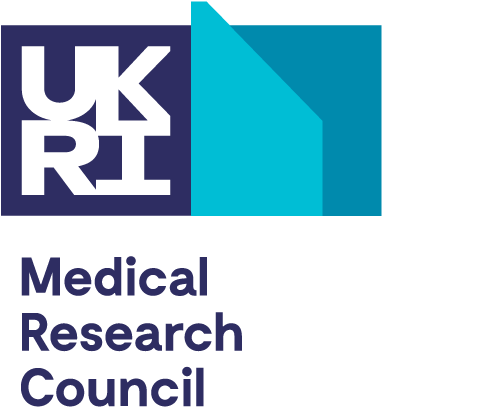The UK policy framework for health and social care research sets out the principles of good practice for research carried out in the NHS and social care across the UK (or Health and Social Care (HSC) in Northern Ireland).
If you are a student, the Health Research Authority (HRA)’s student research toolkit provides guidance on what you can and can’t do in terms of research in the NHS.
If you don’t have a clinical role within the NHS yourself, it may help you to find a local care practitioner to collaborate with you on your research.
If your research will involve NHS premises, patients or staff, you should contact the NHS as early as possible for advice. You can get advice from your local NHS research and development office, or where appropriate one of the following national research support services:
- in England the National Institute for Health and Care Research’s Clinical Research Network
- Health and Care Research Wales
- Northern Ireland’s Clinical Research Network
- NHS Research Scotland
Your local NHS research and development office or one of the national research support services can discuss the feasibility of running your research, such as:
- availability of your patient population (NHS DigiTrials can help identify appropriate patient populations and potential trials sites in England)
- availability of any support services for your research, for example local availability of pharmacy, laboratory and radiology services. (If you are applying for pharmacy or radiology support from the NHS, then you can find further guidance on Technical Assurance)
- any costs associated with running your research in the NHS. If you are applying for funding, MRC provides guidance on NHS costs
Sponsorship and approvals
All research involving the NHS (or HSC in Northern Ireland) needs to have a sponsor. You can learn more about sponsorship in your local research office.
In addition to sponsorship, there are a number of approvals which may be needed before your research can begin. For research involving the NHS you will need ethical approval from an NHS research ethics committee and NHS or HSC research and development permission as a minimum. You may need more. Exactly what approvals you will need, and any other regulatory requirements that you will need to meet, depends on your research and what it will involve.
If you are an academic proposing to collaborate with the NHS, you may need an honorary research contract. If required, NHS research and development offices can help you get the right paperwork in place. This process can take time, so an early start is advisable. The Research Passport is implemented across the UK, to facilitate the process of applying for honorary research contracts in multiple NHS organisations.
We also provide further guidance on:
- using data about people in research
- using human samples in research
- developing healthcare products like medical devices, diagnostics, software, artificial intelligence products, clinical trials and advanced therapies
Please visit developing healthcare products if you are developing an app or other technology with a medical purpose, it may be classed as a medical device.
NHS and HSC research and development permissions
If your research involves premises, patients or staff in the NHS (or HSC in Northern Ireland) you will need appropriate NHS or HSC research and development permissions. The review process is managed slightly differently across the UK. For example, if your lead NHS site is in England or Wales you should apply for HRA approval (Health and Care Research Wales (HCRW approval) in Wales), if led from Scotland NHS research and development permission and if led from Northern Ireland HSC research and development permission.
Cross-border research is coordinated across the four nations, so if your project is led from Scotland or Northern Ireland and involves NHS sites in England or Wales, you do not need to apply separately for HRA or HCRW approval. You need only apply for NHS or HSC research and development permission in the lead nation, and once approved HRA and HCRW approval will be issued for the English or Welsh sites.
The UK local information pack is the UK-wide mechanism for setting up your research in NHS or HSC organisations.
You do not need to complete the UK local information pack for a single centre study with an NHS or HSC sponsor if that single site is an NHS or HSC organisation and it is also the sponsor of your study.
If that’s not the case, each NHS or HSC organisation needs to agree to take part in your research. They need to receive the UK local information pack to do this and confirm they have the capacity and capability to take part in your research. Responsibility for sharing the UK local information pack lies with the sponsor, but this can be delegated. You can find more details on sharing the UK local information pack on IRAS.
If your research involves the NHS, you will find further guidance on NHS and HSC research and development approval process in the Integrated Research Application System (IRAS) help pages.
Applying for approvals using IRAS
IRAS allows you to apply for a number of research approvals.
For clinical trials, the combined review service brings together review by the MHRA and NHS research ethics committee, from a new part of IRAS.
The IRAS online guide helps explain how to use IRAS. It is designed to help those applying for approvals, as well as those who review or sign off projects. If you are new to IRAS then you may find the new users information helpful.
We also provide guidance on applying for ethical approval.
Research transparency
If your research will involve people as participants you should consider how you can be transparent at all stages of the research process. You need to ask questions like:
- where you will register your study once it has been approved so everyone can see it is happening
- how your research participants will find out about the results of your research
- whether the research results will be written in a way that they can easily understand
You can learn more in the HRA’s policy on research transparency.
You will find more guidance on sharing the results of your research under ‘dissemination of findings’ in end of study and archiving.


